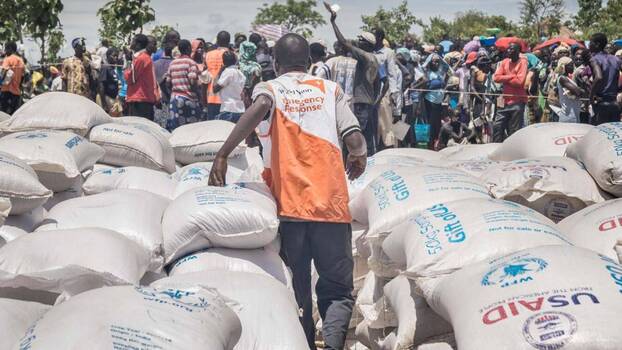
The food price crisis is entering a dangerous new phase — a debt crisis that could plunge millions more into hunger, according to a new report from IPES-Food funded by the Rosa Luxemburg Foundation. Facing structurally higher costs for imports and debt repayments for the foreseeable future, dozens of low-income countries will gradually lose the capacity to address the burgeoning crises they face.
The International Panel of Experts on Sustainable Food Systems seeks to inform debates on food system reform through policy-oriented research and direct engagement with policy processes around the world. The expert panel brings together environmental scientists, development economists, nutritionists, agronomists, and sociologists, as well as experienced practitioners from civil society and social movements.
The working group that prepared the report consists of the following members: Million Belay, Lim Li Ching, Jennifer Clapp, Shalmali Guttal, Hans Herren, Desmond McNeill, Sofia Monsalve Suárez, and Raj Patel.
The public finances of countries across the Global South have been buffeted by the COVID-19 pandemic and the economic disruptions ensuing from Russia’s invasion of Ukraine — particularly sky-high import costs for food, fertilizer, and energy. Sixty percent of low-income countries and 30 percent of middle-income countries are now considered at high risk of, or already in, debt distress. Some 21 countries are nearing catastrophic levels of debt and food distress. Developing countries saw the costs of servicing their debt increase by 35 percent in 2022.
Our unsustainable food systems are a critical factor behind rising debt and hunger today:
- Import dependencies, extractive financial flows, boom-bust commodity cycles, and climate-vulnerable food systems are combining to destabilize the finances of the world's poorest countries.
- Africa’s food import dependency has tripled in recent decades. This leaves countries exposed to food price spikes like in 2022, requiring them to earn dollars via export crops to pay down their debts — rather than meeting local food needs.
- In turn, unsustainable debt leaves countries critically exposed to shocks and undermines their ability to make urgently needed investments in climate-resilient food production and food security.
According to IPES-Food, breaking the cycle of unsustainable food systems, hunger, and debt is vital to comprehensively address this crisis. Debt relief is urgently needed, but not enough. This time around it must go hand-in-hand with transforming food systems and building resilience to climate change — which can reduce food and fertilizer import dependency, hunger, and climate vulnerability. The IPES-Food report calls for urgent action to:
- Provide debt relief and development finance on a scale to meet the needs of COVID-19 recovery, climate-resilient food systems, and the Sustainable Development Goals.
- Repair historical injustices that have left countries funneling profits and exports to the Global North — through windfall taxes on food profiteers, and further steps to achieve tax justice, climate justice, and repay “ecological” and historical debts.
- Democratize financial and food systems governance: decision-making over food systems and in the World Bank and IMF must be reformed to put the interests of the world’s poorest countries and marginalized populations first.